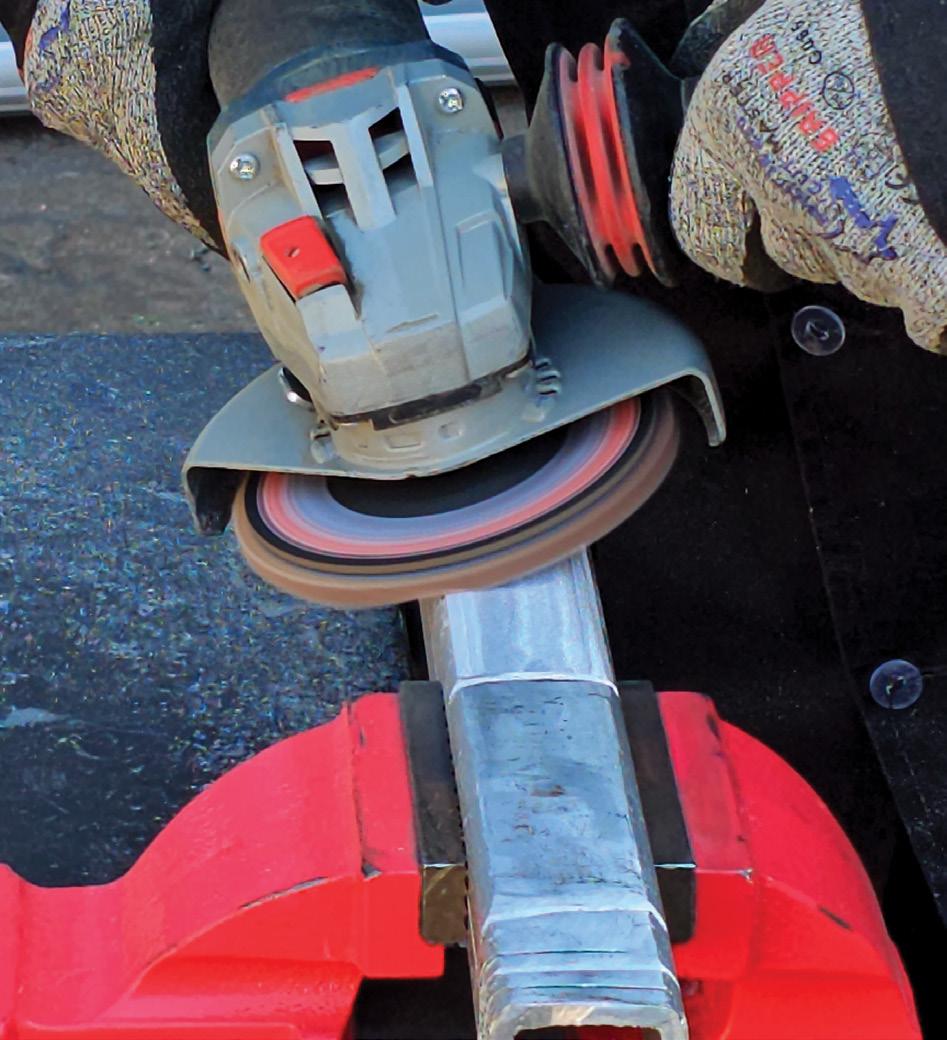
3 minute read
Aluminium fabrication made easy with Superflex
More aluminium is produced each year than any other non-ferrous metal. The demand for aluminium outweighs the supply offered in the market which is evident in its current market price.
Becoming increasingly popular due to its many benefits, aluminium and its alloys are used in the fabrication of various items ranging from pressurised vessels and automotive components right to the domestic use of foil for cooking and baking purposes. Although offering a lighter weight and characteristics that prevents rust unless contaminated aluminium poses a few more challenges when working with and preparing a surface compared to conventional ferrous metals. Metal contamination is a major cause of component and weld failure and occur either through – direct contamination when using the incorrect abrasive products, cross contamination when using the same abrasives on multiple materials, or general contamination due to improper processing of materials in the work environment.
Direct contamination occurs when conventional cutting and grinding discs for steel are used for applications on aluminium.
Abrasive cutting and grinding discs, as well as coated abrasive flap discs, are designed and manufactured with various components that make up the final product. Some of these components like fibre reinforcing, are added to provide structure and support to the final product for strength and support to avoid breakage and damages when in use. Together with these components, other additives are also added into the mix to provide better results, usually by increasing the oxidative and corrosive effect in mild or carbon steels. However, such oxidative and corrosive compounds (iron, sulphur, and chlorine) can cause major issues down the production line when used on aluminium applications. If the work piece is not thoroughly cleaned of these compounds, should it become contaminated, subsequent welding processes will also be influenced and might cause welds not penetrating well, or porosity that will lead to weak welds that can cause catastrophic failures if not resolved.
To avoid cross contamination, care should be taken to avoid using abrasive products on mild or carbon steel, and then on aluminium. Even though abrasive products are manufactured to be free of contaminants, unwanted Iron, sulphur, and chlorine compounds will be introduced when used on mild or carbon steel, which will be transferred to the aluminium upon contact.
It needs to be noted that general workspace contamination can also contribute to the contamination of various materials. Ideally, a floor layout should be planned in such a way that different material types are processed at opposite ends of a factory. This will ensure (to an extent) that swarf created during cutting, blending, or grinding operations of ferrous metals, will not come into contact with aluminium metals within the vicinity, thereby eliminating the possibility of contaminating materials.

Aluminium and its alloys are used in the fabrication of various items ranging from automative components to domestic foil
Grinding Techniques locally manufactures specialised abrasive products free of contaminants which are perfectly suited to applications on both ferrous, and non-ferrous metals, with the Superflex non-ferrous range specifically manufactured for use on aluminium to ensure applications don’t burn, contaminate, or discolour the workpiece. Boasting an extensive selection of abrasives for non-ferrous application, we aim to provide a solution to almost any cutting-and -grinding application.
For more information, Call: +27 11 271-6400 l Email: info@grindtech.com l Visit: www.grindtech.com





